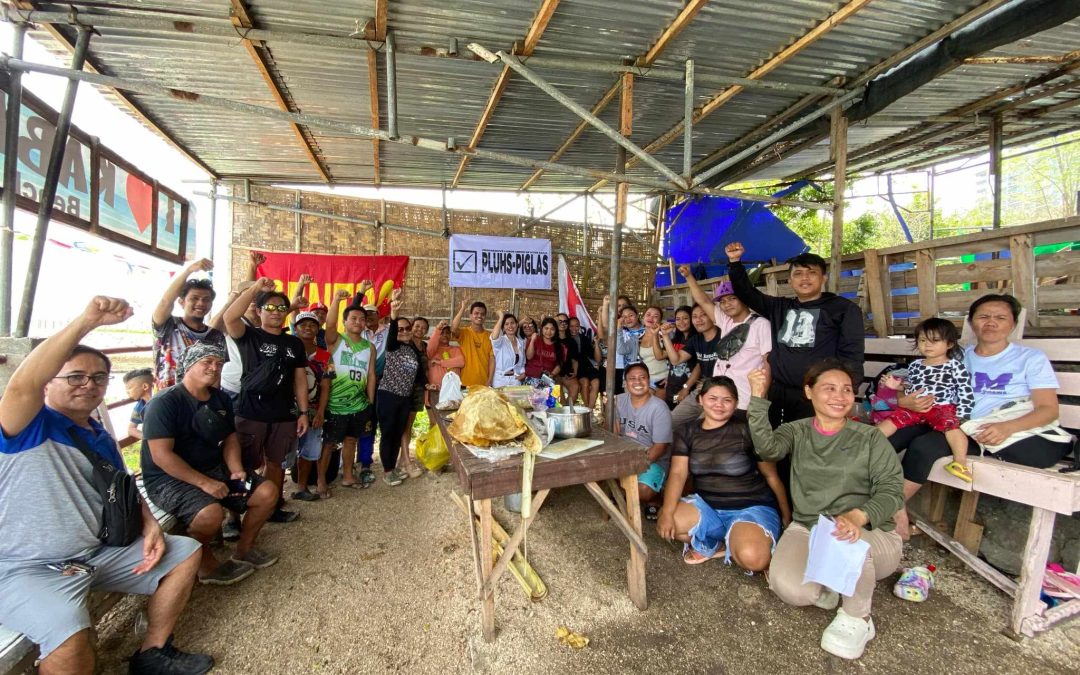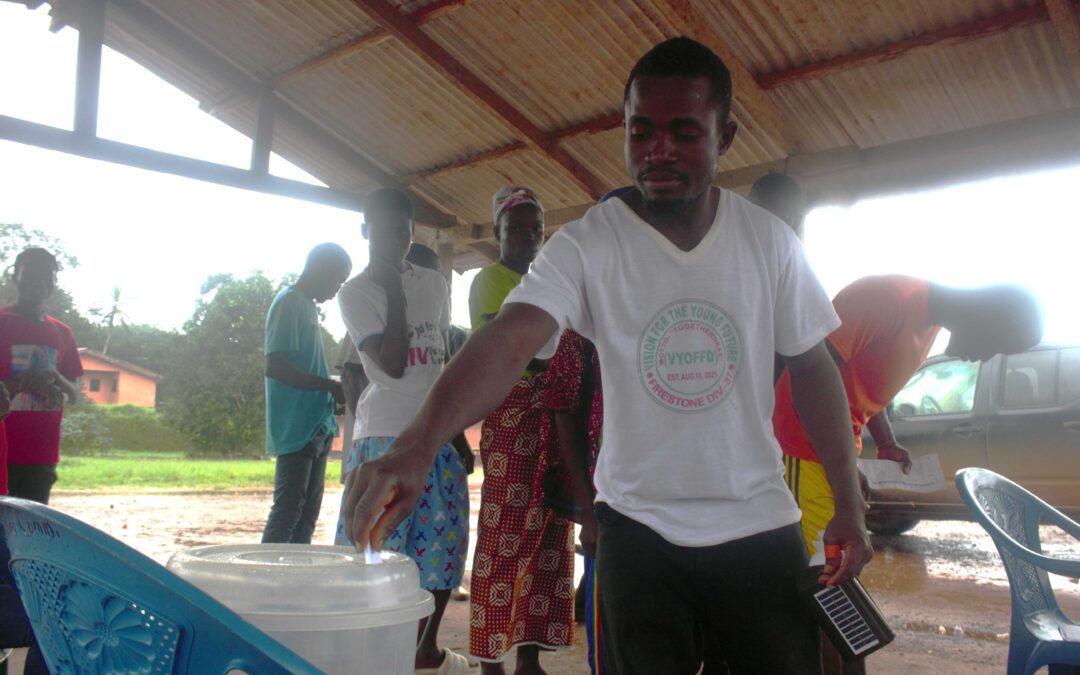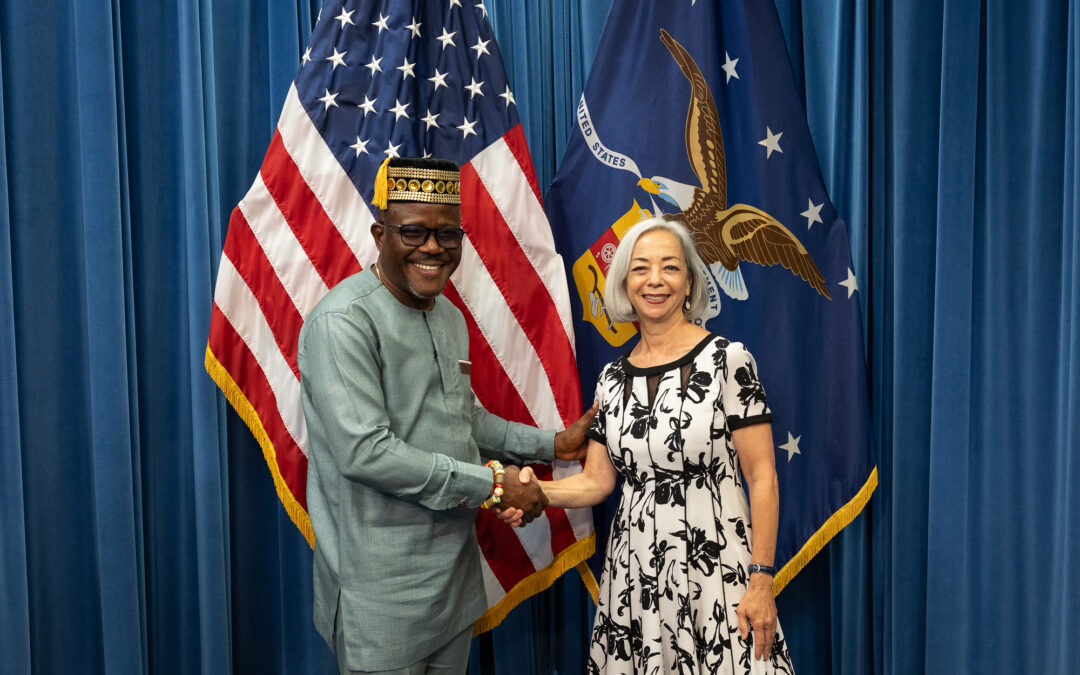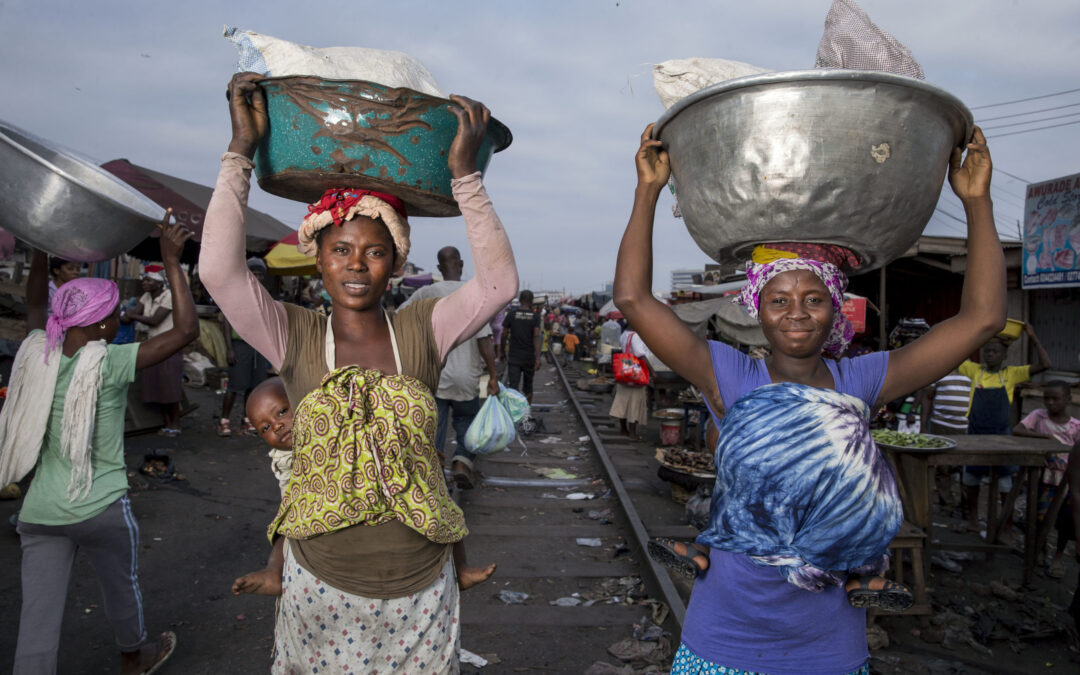
Oct 1, 2024
Organizing a union of more than 200 factory workers in an economic processing zone is a feat in itself, but doing so in just nine months amid management intimidation proves the power of solidarity.
On September 3, more than 60 percent of rank-and-file workers from Hyde Sails Cebu, Inc., a sail manufacturing company, voted union yes in their certification election, with high hopes of negotiating for better benefits and wage increases.
Lucil T. Loquinario, president of the Progressive Labor Union of Hyde Sails (PLUHS-PIGLAS), said earlier this year, “In a union, you will know the true stand and strength of a person,” adding that, “We want to dispel the myth that unions are bad or illegal.”
Fast forward to today, Loquinario noted constant education and pooling strength from each member as the main drivers of their victory. “It is better that all workers know their right to organize and know what we rightfully deserve as written in law. Since management does not let us know, it is only through this endeavor that I know the due process and defense we have as workers.”
The idea of forming a union came to Loquinario in December last year, when she was inspired by a friend who informed her of her rights as a worker. She started getting curious about the benefits her co-workers could be entitled to, along with the automatic 30-day suspension they are bound to when damages are found on manufactured sails.
Loquinario said their organizing started in January—with education seminars and friendly fireside chats with co-workers through May, when the majority of workers was already pro-union. However, word of a budding union reached management.
Loquinario detailed how management started calling them rebels, even installing a security camera in the workplace canteen a few days before the election date to allegedly intimidate workers who planned to vote union yes. She added that management appealed to the Labor department and accused the newly formed union of vote buying for passing out slices of bread to hungry voters after the election.
“It’s worse now,” she said. “Even with a five-minute lapse in break time, they sent a memo to my co-workers.”
Loquinario detailed how, after the election, management started increasing surveillance and demanding written explanations from workers who returned from break a few minutes late. “It is an unreasonable and unfair labor practice,” she said.
While these actions have caused delays in securing their collective bargaining agreement, Loquinario and the union remain hopeful, stressing the importance of having “lakas ng loob,” a Filipino adage for courage.
“We hope this has a good result where we can achieve our goals as workers in proper communication with management,” she said. “Because my co-workers are there, I have more courage to fight for what is right.”

Sep 4, 2024
In a significant win for equity on Firestone Liberia’s rubber plantation in Harbel, more than 90 percent of contract workers voted Saturday to join the Firestone Agricultural Workers’ Union of Liberia (FAWUL). With 1,660 votes for FAWUL representation, contract workers won the right to negotiate collectively with the employer for, they hope, the same wages and benefits currently enjoyed by directly employed workers who are already represented by FAWUL.
“We owe it to generation after generation of workers who have suffered to secure good jobs and dignity for ALL,” says FAWUL Chairperson Rodennick Bongorlee.
FAWUL’s organizing success is the result of the union’s long-term campaign for equity for Firestone’s contracted workers, whose precarious jobs and low wages, often for the same work as permanent employees, are in stark contrast to hard-won worker rights on the rubber plantation.
A 2008 collective bargaining agreement (CBA) and subsequent agreements were key for workers and labor rights in Liberia, where Firestone is the country’s largest employer. Previous to these agreements, plantation workers had endured working conditions that a 2005 human rights lawsuit against the company described as,”forced labor, the modern equivalent of slavery,” where exploitative quotas resulted in excessive hard labor and children working alongside their parents in lieu of attending school. However, through a series of agreements with the company since 2008, FAWUL won for directly employed workers improved conditions that include reduced quotas, better working conditions and compensation, on-site free schooling for workers’ children, a free onsite health clinic and somewhat improved housing.
But, after 15 years of partnership with agricultural workers on the plantation, the company is increasingly backtracking. By FAWUL’s calculations, since 2019, some 3,500 full-time jobs have been lost to Firestone-imposed transfers to contract positions, lay-offs and forced retirements. In 2019, Firestone fired up to 2,000 employees and required them to sign contracts with “labor contractors,” who in turn hired the former employees to perform the same work under Firestone Liberia’s supervision, but at significantly lower rates of pay, with no benefits and without the protections provided by FAWUL’s CBA.
Without collective voice and effective representation through a union, contract workers have been subject to safety risks and exploitation. Although all plantation workers face grave dangers to their health and safety, low-wage contract workers cannot afford personal protective equipment such as boots, gloves and glasses and are at increased risk related to acid use and snake bite exposure. And inadequate company housing for contract workers—usually a small, two-room brick apartment that houses 15–20 people from two extended families—is exposing contract workers and their families to unsafe crowding and, some workers report, rat infestation.
And, without CBA protection, contracted workers complain of economic exploitation. Contract tappers last month were describing Firestone Liberia’s measurement process for reimbursing latex extraction as “cheating,” and said they are being forced to work excessive overtime regularly without commensurate pay or, sometimes, any pay at all. Contract cup washers, most of whom are women who walk more than an hour to work, say they too are forced to work excessive hours without fair or, sometimes, any compensation. Excessive hours are enforced by threat of discipline or dismissal contract workers told the Solidarity Center—a very serious threat for those trapped in debt bondage to the company.
“We applaud the courage and spirit of the Firestone plantation workers who have steadfastly fought for a union to improve their lives and working conditions,” says Solidarity Center Executive Director Shawna Bader-Blau.
FAWUL in 2007 was awarded the AFL-CIO’s annual George Meany-Lane Kirkland Human Rights Award in recognition of the union’s “extraordinary courage” in successfully organizing more than 4,000 Firestone Liberia workers for the first time in the company’s 82-year existence in the country. An indirect subsidiary of Bridgestone Americas Inc., Firestone Liberia is the largest contiguous natural-rubber producing operation in the world. The company supplies Bridgestone with raw and block latex with which to manufacture tires in the United States. Approximately 25,000 people reside on the Firestone-Liberia plantation, including roughly 8,500 workers with their families. Because Firestone Liberia is an employment-standards trendsetter, plantation wages and working conditions have a direct impact on the livelihoods, rights and dignity of all workers in Liberia.
The Solidarity Center, in partnership with the United Steelworkers (USW), works with Liberian unions in key extractive industries such as mining, timber and rubber, as well as with domestic workers, to support them as they better serve their members and assist workers in forming unions.

Jul 26, 2024
More than 500 Philippine workers and trade unionists joined a march on July 22nd in Quezon City, demanding that President Ferdinand R. Marcos, Jr. declare support in his State of the Nation Address (SONA) for legislation that would further raise the minimum wage.
The Regional Tripartite Wages and Productivity Board approved a 35 PHP (approximately 0.60 US dollar) daily minimum wage hike for workers in the capital region earlier this month. This falls far short of the 150 PHP (about 3 US dollars) wage hike the National Wage Coalition has persistently called for to support workers’ economic recovery amid high inflation, poor job quality and a lack of new and decent jobs.
The Coalition, representing local workers across various industries and sectors, has remained steadfast in demanding livable wages and are advocating for multiple bills that have been introduced but still await action from the government.
The president has yet to engage in dialogue with Philippine Labor representatives and did not mention wages in his SONA.
Coalition member, Center of United and Progressive Workers (SENTRO), noted in an online statement, “[t]he [national government’s] absence of genuine effort to attain long-term solutions against rising costs and the provision of measly increases that leave workers running in place against inflation…” SENTRO added, “We deserve higher wages not simply because of our labor, but because we are human beings who have every right to live peacefully and decently.”

Jul 22, 2024
General Agricultural Workers’ Union of Ghana (GAWU) Deputy General Secretary Andrews Addoquaye Tagoe was recognized last month by the U.S. Department of Labor (USDOL) for his role in advancing child and worker rights and for reducing child labor in Ghana’s agricultural industry.
“Where the union is present, child labor is absent,” Tagoe said about GAWU’s campaign to end child labor on Ghana’s cocoa farms.
Alarmed by increasing child labor in Ghana and Ivory Coast cocoa production, GAWU is addressing child labor in cocoa farming communities by applying a child-labor-reduction model honed in fishing communities on Lake Volta. The program raises awareness and incomes of parents so that kids can stay in school.
Although the cocoa industry’s biggest companies pledged to eradicate the “worst forms” of child labor in their supply chains nearly 20 years ago, up to 2 million children are estimated to be engaged in cocoa production in West Africa—primarily in Ghana and Ivory Coast. The two countries together supply roughly 60 percent of the world’s cocoa beans. As cocoa production in both countries has increased, so has child labor.
The profitable global chocolate market last year was worth $132.65 billion, with three major global chocolate brands together earning almost $4 billion in profits from chocolate sales while a fourth global brand’s confectionery profits totaled $2 billion. The four corporations on average paid out 97 percent of their total net profits to shareholders in 2023, reports Oxfam. Meanwhile, up to 58 percent of cocoa farmers in Côte d’Ivoire and Ghana were living below the World Bank extreme poverty line in 2021 and up to 90 percent did not earn a living income. According to the Child Labor Coalition, of which the Solidarity Center is a member, the cocoa industry must pay a living income while scaling up programs that identify child laborers and ensure that children can go to school.
”Building worker voice at local and national levels for farmers to benefit from higher cocoa prices and the profitable global chocolate industry will help end child labor, says GAWU.
Children in Ghana are subjected to the worst forms of child labor, including in fishing and cocoa production, reported USDOL in 2022. More than half of children living in agricultural households in Ghana are reportedly engaged in child labor, most in at least one form of hazardous child labor.
By organizing and formalizing the agricultural economy in rural areas and working with communities to eliminate child labor, Tagoe has developed and implemented child labor free zones resulting in ‘withdrawal of thousands of children in rural communities from the worst forms of child labor,’ said Thea Lee, USDOL Deputy Secretary for International Affairs at the award ceremony.
“An Africa without child labor is possible,” Tagoe said in his acceptance speech.
Tagoe was co-recipient of the 2024 USDOL’s Iqbal Masih Award for the Elimination of Child Labor with Egyptian civil society organization Wadi El Nil. The award honors its namesake, a Pakistani child sold into slavery at age four to work as a carpet weaver and who, after escaping at age 10, became an outspoken public advocate against child exploitation and died tragically at the age of 12.
Watch a Solidarity Center video about GAWU’s fight against child labor in cocoa production.

Jun 5, 2024
Through expanded regional and global partnerships, the Organization of Trade Unions of West Africa (OTUWA) is growing its campaign for increased budgetary allocation to health care in the region, said OTUWA Executive Secretary John Odah from Abuja, in a solidarity message to the opening session of the 24th Plenary of the West African Health Sector Unions Network (WAHSUN).
Now in its fourth year, OTUWA’s “Health Care Is a Human Right” advocacy campaign is allying with global union federation Public Services International (PSI), civil society organizations across the region and WAHSUN to better advocate for equal and fair health care access for all who live within the Economic Community of West African States (ECOWAS).
Nearly 83 percent of Africa’s workers are trapped in poorly paid and uncertain informal-sector jobs and lack access to state-provided health care or health insurance—an unfair financial burden on the continent’s most vulnerable individuals. And yet West Africa’s governments are not implementing the 15 percent minimum annual budgetary health allocation to which African heads of state agreed in the landmark 2001 Abuja Declaration. No country in the region achieves this percentage currently.
OTUWA’s campaign, launched in 2020 by national labor federations from five countries, has expanded its reach to health sector unions and national labor centers in eight countries—including the Gambia, Ghana, Ivory Coast, Liberia, Nigeria, Senegal, Sierra Leone and Togo—as well as to civil society organizations such as the International Federation of Women Lawyers (FIDA). The Office of the United Nations High Commissioner for Human Rights with the World Health Organization defines the right to health as “a fundamental part of our human rights and of our understanding of a life in dignity.” The Solidarity Center supports OTUWA in this campaign and on other worker rights initiatives.
“Together we must get public health services out of their chronic state of neglect and underfunding,” Odah told the Solidarity Center, adding that OTUWA’s campaign is adding good governance to its health care demands.
Thus far, the campaign has gathered and released important regional health care worker data and initiated advocacy meetings with national, regional and continent-wide African Union legislators and policymakers, including the Parliament of the Economic Community of West African States (ECOWAS). The campaign most recently saw success in Nigeria earlier this year, where the federal government announced a disbursement of almost $70 million to bolster the country’s health infrastructure.
“Only a transparent, democratic system can secure, fairly allocate and responsibly spend increased health care funds,” said Odah.
OTUWA represents national trade union centers in the 15 West African countries comprising ECOWAS. PSI encompasses more than 700 trade unions that represent 30 million workers in 154 countries.
Watch a video about the campaign.





